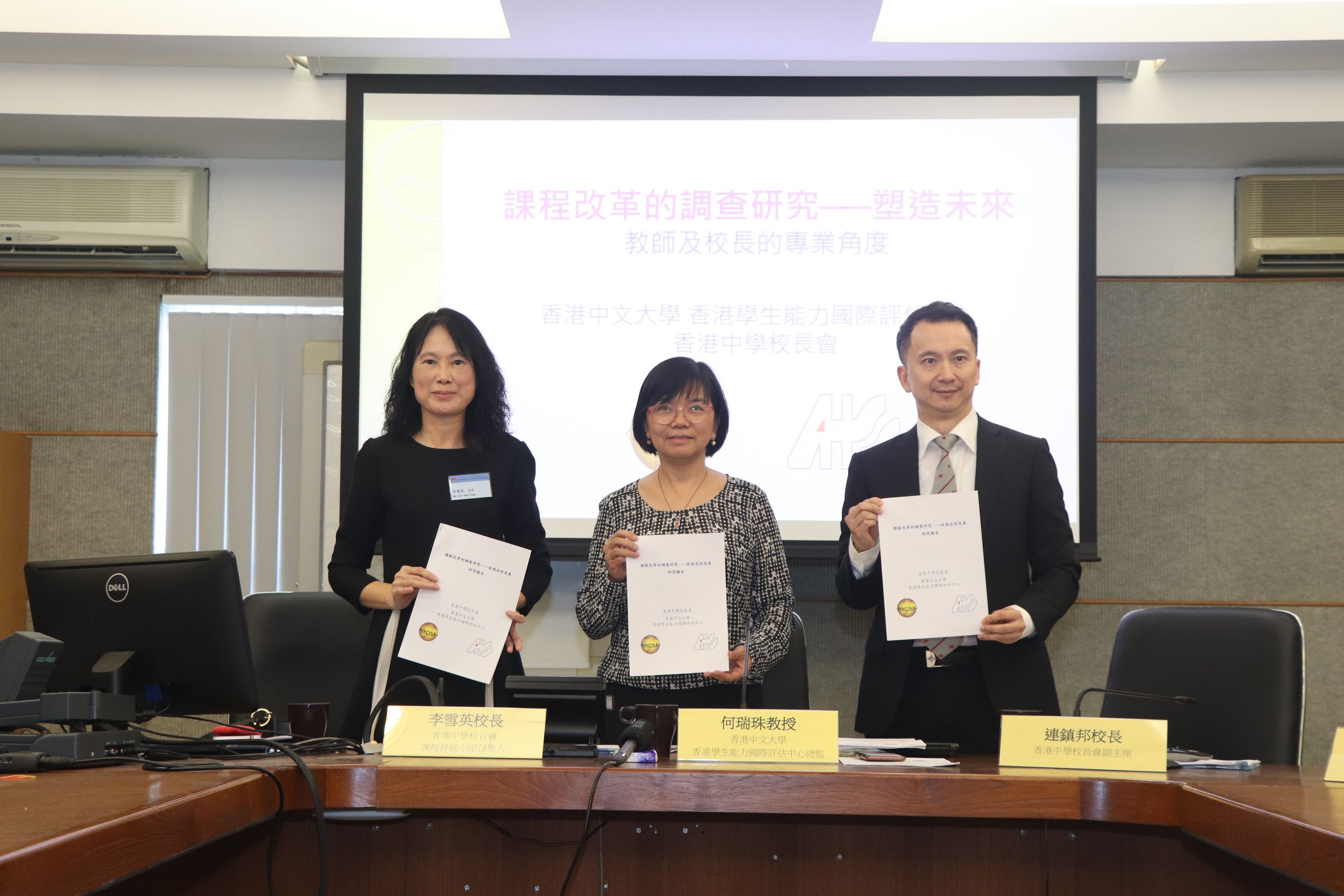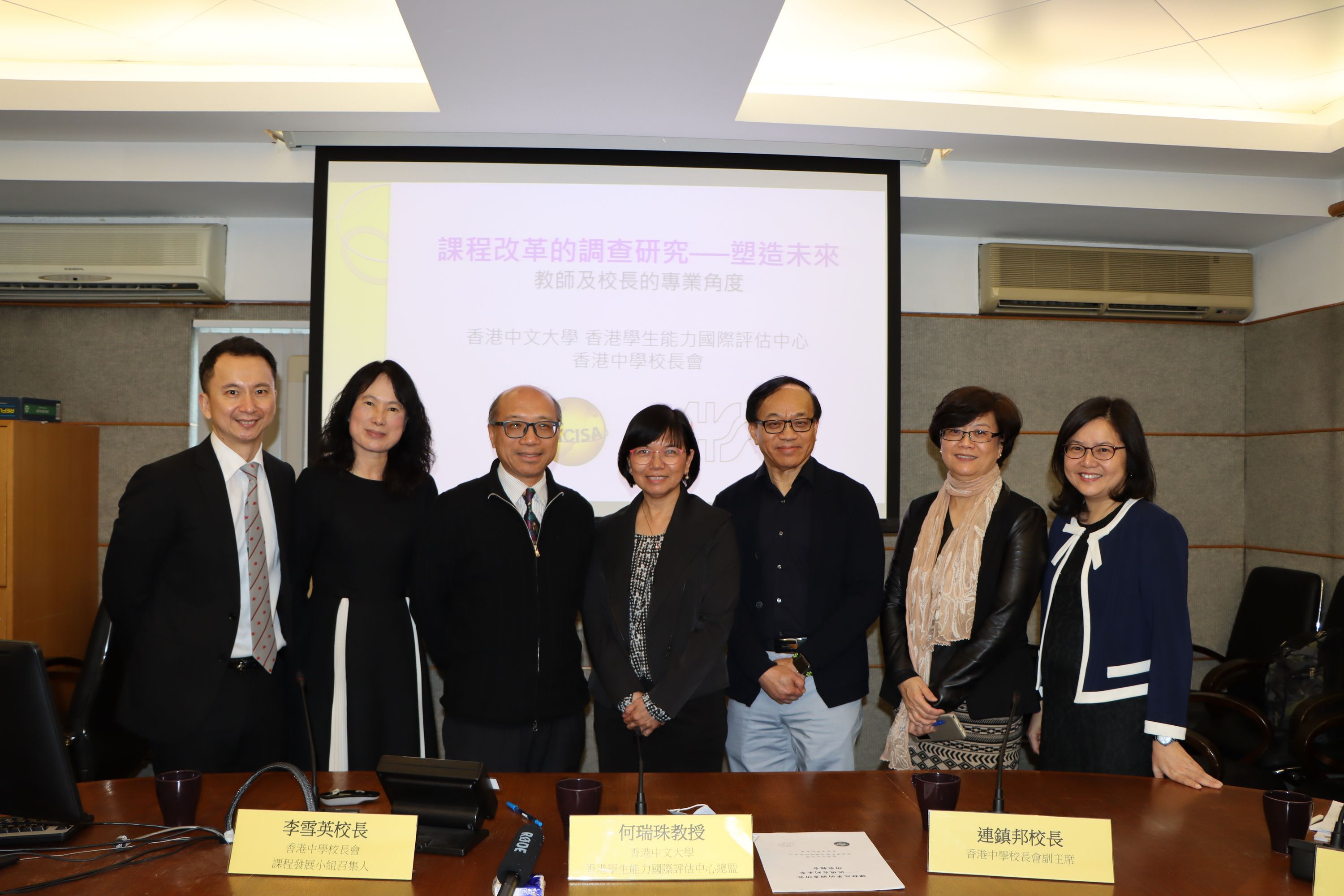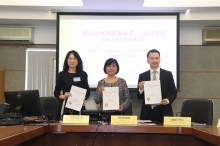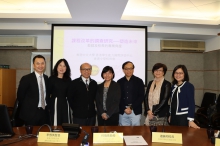News Centre
Curriculum Reform – Shaping the FutureCUHK and HKAHSS Release Results of Curriculum Reform Survey
The Hong Kong Centre for International Student Assessment (HKCISA) at The Chinese University of Hong Kong and the Hong Kong Association of the Heads of Secondary Schools (HKAHSS) jointly publicised the research findings of the “Survey on the Curriculum Reform: From Present to the Future” today (16 January). The survey reveals a majority of Hong Kong educators agree that the most important aim of the future secondary curriculum is to improve students’ transversal and transformative competencies and generic skills and to strengthen life education and values education.
During September 2019, the HKCISA and the HKAHSS randomly selected 183 principals and 1,158 teachers from 213 secondary schools for a questionnaire survey, in which their opinions on the effects, implementation and difficulties of the existing secondary curriculum policy, and their views about the need for a future curriculum were collected. This press release provides suggestions on the development of a future curriculum from the professional perspective of educators, as well as a review of educators’ opinions on the existing curriculum and its implications for developing capabilities.
I. Survey results
1. Improving students’ transversal, transformative competencies and generic skills
Over 80% of the surveyed educators agreed that the most important aim of the future curriculum is to improve students’ transversal and transformative competencies (Figure 1). These include the ability to act autonomously and take responsibility (89.5%); to interact in heterogeneous groups and reconcile tensions and dilemmas (85.4%); and to solve problems and improve the current situation by making use of multiple literacies (e.g., media and information literacy, critical and creative thinking) (84.0%). These competencies are precisely the qualities necessary for students to face the future, as advocated by The Organisation for Economic Co-operation and Development (OECD) and The United Nations Educational, Scientific and Cultural Organization (UNESCO). 80% to 90% of the surveyed educators agreed that students’ development of generic skills (Figure 2) which include humanistic qualities, respect and inclusiveness for diverse views and cultures (91.1%), critical thinking (86.0%) and creativity (83.5%) should be strengthened.
2. Opinions on the improvement of the existing curriculum
In order to develop capabilities with the above qualities, about 80% of the surveyed educators agreed to continue to strengthen values education (81.7%) and life education (81.0%) (Figure 3). Strengthening of support measures is necessary for creating room for teachers to design and implement the values education and life education curricula. This include increasing manpower for professional support (89.8%), raising the teacher-to-class ratio (89.4%) and enhancing the professional development of teachers (77.1%) (Figure 4).
II. Recommendations on the future curriculum
1. Our curriculum should embrace universal values and develop the “soft power” of our students
The survey results reveal local educators in general agree that the Hong Kong curriculum should further equip students to be global citizens of the future. It is important to help our students build transversal and transformative competencies (Figure 1), develop generic skills, encourage inclusiveness and tolerance for diverse views and values (Figure 2), and cultivate personal values (Figure 3). Rather than focusing on the transmission of compartmentalised subject knowledge, it is far more important to help our students develop soft power and integrate with the global community.
2. Our curriculum and assessment system should be more flexible to allow students to unleash their potential
As everyone has different aptitudes and abilities, our curriculum and assessment should offer diverse development opportunities for all students. There should be multiple entry and exit pathways so that students with different abilities can have equal learning opportunities (Figure 5). Our curriculum and assessment system should be more flexible and the high-stake and demanding HKDSE should make appropriate adjustments.
3. Our curriculum should go beyond the existing framework, break boundaries and be creative
The implementation of the new senior secondary school curriculum has shortcomings in catering for learner diversities, including students with special education needs (SEN) and gifted students (Figure 6). Teachers have used school-based strategies such as small class teaching and adaptations (Figure 7) to cater for learner differences and have achieved some success. However, these strategies are largely limited by the inherent deficiencies in the curriculum design.
When the world is rapidly developing, secondary school education should break the existing boundaries and rethink as follows. Why should there be a split between formal and informal curriculum? Should there be new subjects and new learning emphasis according to world development? Must learning take place on a school campus? If Hong Kong is still dilly dallying and only makes cosmetic changes to our existing curriculum, the quality of our education will suffer, and we will eventually lose our competitive edge.
The current international trend emphasises the training of soft power and the cultivation of values in students. Such a direction coincides with the survey findings and echoes the common vision presented by speakers at the Education Colloquium 2019 organised by the HKAHSS a few months ago. The reality of the curriculum in Hong Kong is a far cry from the ideal one shared by many of us. The HKCISA and the HKAHSS sincerely hope the curriculum reform in Hong Kong can truly realise the common vision of “Shaping the Future”.



